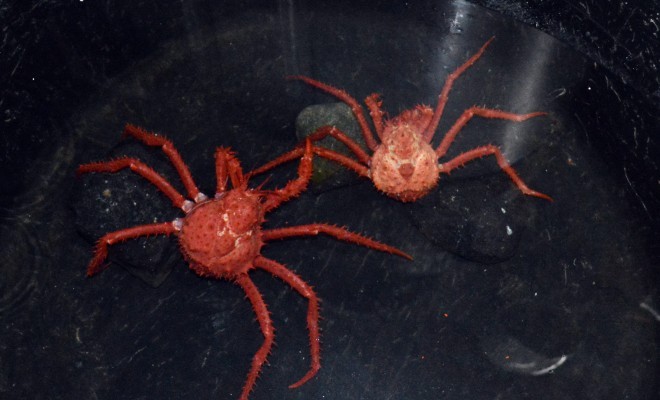For the first time in 30 million years, the fragile and ultimately diverse ecosystem found in Antarctica's shallow continental ice shelf is now under threat from destructive predators such as the king crab.
Normally, the ice shelf and its waters are colder than the deeper waters off Antarctica that kept the invading king crabs at bay. However, due to rising sea levels in deeper waters because of climate change, temperatures have increased to 1.5 degrees Celsius which is twice the global average, helping the king crabs move up the water column.
According to biologist Richard Aronson from the Florida Institute of Technology, sea stars, urchins and snails that are indigenous to the icy region do not possess special defenses to prevent the king crabs from preying on them, where the predators use their shell crushing abilities.
Aronson adds that predators like these have not been present in these communities for millions of years, where ecosystems already evolved and adapted rather differently compared to a clam bed in Cape Cod. When the king crabs migrate to this region, they can knock down populations that have been thriving in these habitats for a very long time.
In this new study, researchers used a camera rig attached to an underwater vehicle in order to study king crabs on the continental slope. At depths of 2,800 to 7,500 feet, the crabs were found at 4.5 crabs per 10,000 square feet which can already be considered a large enough population.
Scientists also discovered how female crabs are filled with eggs, confirming a sustainable population. The team also found out how the crabs like to feed on mollusks and sea stars that are endemic to the continental shelf.
Aronson adds that it is still difficult to determine how fast the king crab population is moving where scientists only recorded king crabs on the Antarctic continental shelf beginning in 2003. To date, the top layer of the Antarctic waters is still too frigid for the crabs to survive.
This new study is published in the journal Proceedings of the National Academy of Sciences.



























